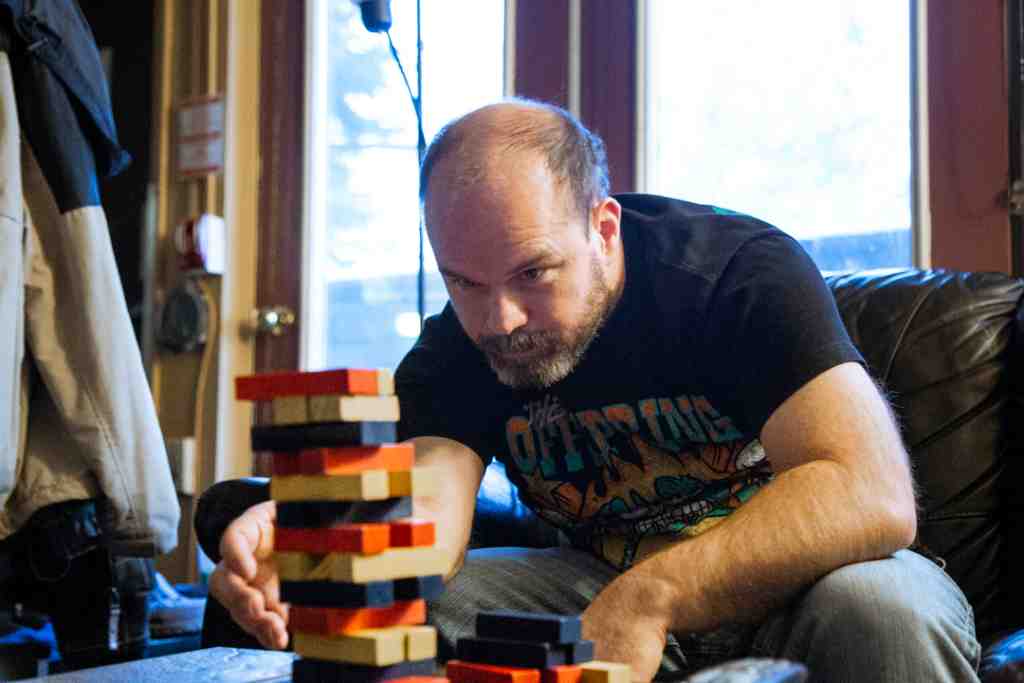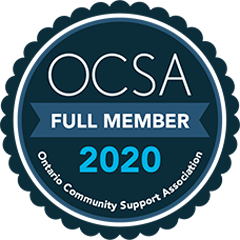For Professionals
Working with families
The Family's Response to Brain Injury
For the majority of families of brain injured persons, they experience shock and confusion for a period of time immediately following the injury. Often, the probability that the victim will not survive the injury is high; therefore, members of the family are often numbed by the thought that their family member may not survive. Although reactions will vary from person to person, the traumatic quality of the situation will affect all members of the family.
Following a traumatic injury, family members may experience anxiety and confusion. Once it has become evident that the victim will survive, members of the family can be caught in a denial process; specifically, they may ignore evidence that suggests that the prognosis for the survivor is poor. Once they have come to terms with the prospect of incomplete restoration, they may display a variety of emotions including anger, fatigue, frustration, and feelings of hopelessness. Expressions of guilt and ambivalence are also common.
The injured person's behavioural changes may create a wide range of emotional challenges for members of the family. The care that the family provides for the injured person may give rise to alterations within the family structure. Commonly, it is observed that spouses of injured persons assume a "caretaker" role. These new roles may depart dramatically from the previous roles.
The period of recovery for the person with the traumatic brain injury can be protracted. Family members themselves experience decreased social contact and decreased opportunities to engage in recreational or leisure pursuits. Families often report losing their friends or noticing that their close friends no longer visit as often as they did before the injury. Feelings of isolation are intensified by alterations in intimacy with the injured person. In some circumstances, the injured person appears to be a "stranger" to members of the family.
The role that each member in the family held prior to the injury is greatly altered following the injury. For example, if the injured person is the husband and he was largely responsible for the finances of the family, he may relinquish this role to his wife or other person. He may also have been responsible for household repairs; however, following the injury, other family members may now assume responsibility for those duties.
Grief
For survivors of traumatic brain injury, grief is paramount. In traumatic brain injury, grief is greatly complicated by the fact that the family is living with a "stranger". It is often unclear to the family whether the stranger will transform himself/herself to the person he/she was before the injury. Small signs of progress may be magnified and may be seen by the family as signifying great improvements. Changes in the survivor's presentation may be misinterpreted.
There is no simple cure for grief. Most health care practitioners accept that grief is a phenomenon which must run its course. It is essential that families receive support and concern for the complex emotions and feelings they experience. Families often express appreciation for our recognition of their suffering and insecurity.
Working with Families
The most important word in dealing with families is collaboration. When brain injured persons return to their homes, family members inevitably provide tremendous amounts of care. Often, they provide levels of care that exceed their physical and emotional resources.
A number of suggestions about dealing with families can be made; in general, the following suggestions should be implemented where situations permit:
1) Respect the family's need to have hope
Most family members keep a high level of hope even in the face of adversity. Their sense of hope should never be denied or questioned. For many families, hope is all they have.
2) Incorporate the perspective of family members
Attempt to gain the perspective of the family. This can be achieved by listening carefully to their concerns and attempting to integrate their ideas into the work that is to be conducted.
3) Negotiate
Before conducting therapeutic work in the home, it is important to discuss the details of any therapeutic intervention with the family. Specifically, it is important to identify purposes, treatment rationales and time lines. It is equally important to establish the roles that each person will play in a particular therapeutic situation. Generally, the establishment of duties and roles requires a discussion or negotiation. Once agreements have been made, it helps to periodically review them with members of the family.
4) Include family members in treatment
Where possible, family members can be encouraged to take on specific, limited objectives. It is important to encourage their participation only to the extent that they can deal with a set of limited tasks. In some situations, family members are completely exhausted and discouraged; in these situations, the best way they can participate is to relax and gather their own personal resources.
5) Be prepared to state your limits
As health care professionals, we need to attach limits to our involvements. It is not possible to be all things to all people; consequently, it is important to know ahead of time that certain problem areas may not be dealt with. The challenges faced by brain injured persons and their families are infinite; however, the resources of health care professionals to deal with these problems are not without limits.
6) Encourage family members to accept their own limits
Family members have limits as well. In situations where it is apparent that family members are becoming exhausted or over-stressed, they should be encouraged to seek relief. It may help to remind them that they are not expected to do everything and that their own emotional and physical well being is of great importance.
7) Have patience
Recovery for brain injured persons can take a long time. Grief affects family members for a long time. If families feel rushed or hurried, their confusion and anxiety may be intensified. Most families appreciate a controlled pace and they are generally very cooperative when they fully understand the details of our interventions. On occasion, health care professionals observe signs of frustration and anger; we need to be prepared to hear the families' concerns. It can appear that health care professionals are receiving abuse or disrespect from families; however, these may be situations where the fears and anxieties of the family have become so high that they are disabled in their capacity to control their expression of these emotions. Efforts to understand these complex emotions will be valued by family members.
Summary
Families suffer greatly as a result of traumatic brain injury. They experience a wide variety of emotions over a long period of time. It is important that their reactions are understood by health care professionals.
In general, collaboration and communication need to be well established before therapeutic work can begin with the injured person. It is recommended that health care personnel meet with families and engage them in the process of negotiation.
There may be situations where families resist ideas or question the participation of certain health care professionals. These situations emphasize the need to keep negotiation active and to begin work only after a clear list of goals has been agreed upon by all parties.
Additional information can be found on the Substance Use/Brain Injury Bridging Project website - http://www.subi.ca
The Manual
The accompanying manual is available here as a free download.
The manual is free and may be copied as free of charge.
Support Articles
Managing Problem Behaviours
Describes changes in the behaviour of a person with brain injury and strategies in dealing with such behaviour.
A Model for Community-based Services
Describes the 10 principles presented as an ideal model for community ABI programs.
Brain Injury and Substance Abuse
The Centre for Addiction and Mental Health (Toronto) and the Toronto Acquired Brain Injury Network developed this educational resource for providers working in the fields of Brain Injury and Substance Abuse.
Working with families
The most important word in dealing with families is collaboration. This article provides a number of suggestions for dealing with families of a person with brain injury.





